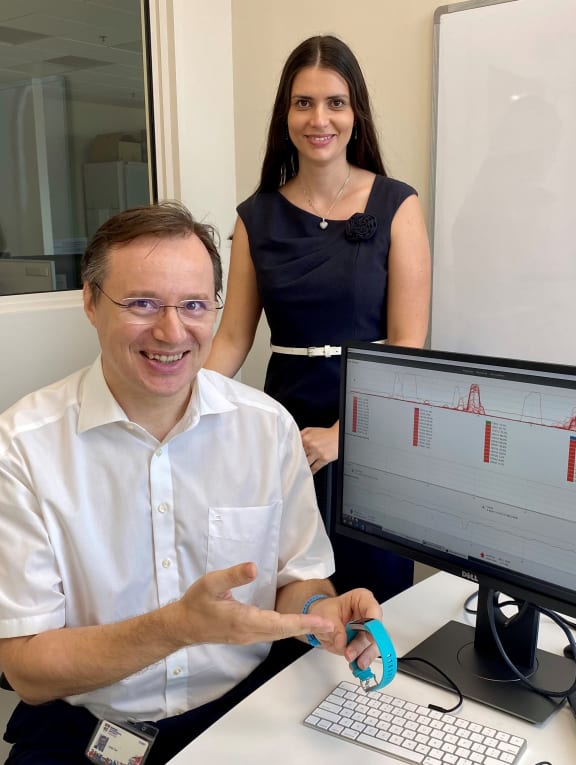NTU researchers develop way to detect depression risk using data from wearable technology

Professor Josip Car (left), director of the Centre for Population Health Sciences at NTU’s Lee Kong Chian School of Medicine, and senior research fellow Iva Bojic, were part of a team that developed a way to detect depression risk through smartwatch data.
Researchers from Nanyang Technological University (NTU) have developed a way to analyse data from wearable technology such as Fitbit and other smartwatches, to help detect people who have an increased risk of depression.
Using indicators such as heart rate and sleeping patterns, the system has proven to have a 80 per cent accuracy rate of detecting individuals with a high risk of depression.
Work on the programme, called the Ycogni model, started in October 2019 and involved a study of 290 working adults in Singapore.
Participants wore a Fitbit Charge 2 device for two weeks and completed two health surveys that screened for depression — once at the start and the other at the end of the study.
Analysis of the data found the following associations between certain indicators and mental health:
- Less regular sleeping patterns, such as varying waking times and bedtimes were associated with higher tendency of depressive symptoms
- Healthy people demonstrated a greater regularity in the timings when they woke up and went to sleep.
- Those who had more varied heart rates between 2am and 4am, and between 4am and 6am were more prone to severe depressive symptoms



